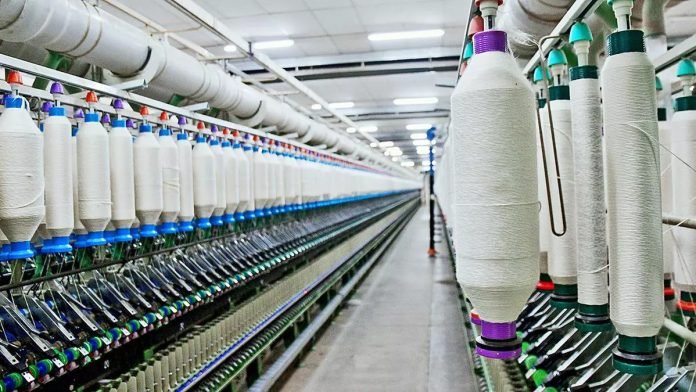Coimbatore, often hailed as the “Manchester of South India,” has a rich history deeply intertwined with the textile industry. Known for its prolific cotton production and thriving mills, Coimbatore has grown from a humble town into a global hub for textiles. This article delves into the evolution of Coimbatore’s textile industry, tracing its roots, growth, and current standing in the global market.
Early Beginnings: The Cotton Boom
Coimbatore’s textile journey began with its natural advantage—cotton. The region’s favorable climate, abundant water supply from the Noyyal River, and fertile soil made it ideal for cotton cultivation. By the late 19th and early 20th centuries, Coimbatore was already recognized for its cotton production, which laid the groundwork for the establishment of textile mills.
In the early 1900s, several entrepreneurs, many of whom were from the Chettiar and Gounder communities, saw the potential in Coimbatore’s cotton resources. They began setting up cotton mills, which would spin raw cotton into yarn and produce textiles. One of the pioneers of this movement was R. K. Shanmugam Chettiar, who founded Lakshmi Mills in 1910. Lakshmi Mills quickly became a symbol of Coimbatore’s industrial future and ushered in an era of modernization and industrialization in the region.
The Rise of Mills and the Post-Independence Era
By the mid-20th century, Coimbatore was home to several textile mills, including well-known names such as Saroja Mills, Sri Krishna Mills, and Premier Mills. These mills, built on cutting-edge technology of the time, employed thousands of workers and transformed Coimbatore from an agrarian town into an industrial city.
The period following India’s independence saw a rapid expansion in Coimbatore’s textile sector. The Indian government’s focus on industrialization, coupled with Coimbatore’s proximity to Chennai and major ports, allowed it to flourish as a center for yarn and fabric production. The 1960s and 1970s witnessed a significant boom in the textile industry as more mills were established, and cotton exports grew. Coimbatore became renowned not just for its yarn but also for producing high-quality fabrics that were exported to international markets.
Spinning and Weaving Success
Spinning became Coimbatore’s forte during the later half of the 20th century. The city’s mills had become some of the most efficient in the world, producing large quantities of yarn that were used both domestically and internationally. Coimbatore became known for its spinning mills, which provided high-quality yarn to textile manufacturers across India and beyond.
However, it wasn’t just spinning that put Coimbatore on the map. Weaving and garment manufacturing also grew exponentially during this time. The city’s industries began producing a wide range of fabrics—from cotton and polyester blends to intricate silk textiles. As technology advanced, Coimbatore adopted modern weaving techniques, increasing both production capacity and quality.
The Emergence of Power Looms and Technical Textiles
The 1980s and 1990s saw the rise of power looms, which significantly enhanced the production capacity of Coimbatore’s textile industry. The introduction of automated weaving technologies enabled quicker production, while the region’s textile industry continued to diversify into producing various types of fabrics, from home furnishings to industrial textiles.
One of the more recent advancements in Coimbatore’s textile landscape has been the emergence of technical textiles. These textiles, which are engineered for performance rather than aesthetics, are used in industries ranging from healthcare and construction to agriculture and defense. Coimbatore has been quick to embrace this growing sector, further solidifying its position as a versatile textile hub.
Coimbatore Today: A Global Textile Powerhouse
Today, Coimbatore is a well-established name in the global textile industry. The city is home to more than 100 spinning mills and produces a significant percentage of India’s cotton yarn, making it one of the largest producers of yarn in the country. Coimbatore’s textile industry also includes a vibrant garment sector, producing clothing for both domestic and international markets.
One of the key factors behind the success of Coimbatore’s textile industry is the city’s adaptability and willingness to embrace new technologies. Over the decades, mills have transitioned from manual to semi-automated to fully automated processes, allowing for large-scale production while maintaining high standards of quality.
The Role of SMEs and Entrepreneurs
Coimbatore’s textile industry is not solely defined by large mills. The city has a robust network of small and medium-sized enterprises (SMEs) that contribute significantly to its overall production. Many of these smaller units specialize in niche markets, such as technical textiles or eco-friendly fabrics, while others focus on producing high-quality yarn and fabrics for export.
The entrepreneurial spirit of Coimbatore has also played a crucial role in the industry’s success. Over the years, the city has seen numerous entrepreneurs start small textile units that have grown into major enterprises. The government’s support for SMEs and initiatives like the Make in India campaign have further bolstered the growth of the textile sector in Coimbatore.
Challenges and the Road Ahead
Despite its success, Coimbatore’s textile industry faces challenges. The fluctuating price of raw cotton, competition from low-cost producers in countries like China and Bangladesh, and the need for sustainable practices are pressing issues that the industry must navigate.
To remain competitive, Coimbatore’s textile manufacturers are increasingly focusing on innovation, sustainability, and automation. Many mills are adopting eco-friendly practices, such as using organic cotton and implementing water-saving technologies in production processes. The focus on technical textiles and value-added products, such as designer fabrics and custom-made garments, has also allowed Coimbatore to maintain its relevance in a highly competitive global market.
Conclusion: A Legacy of Excellence
The evolution of Coimbatore’s textile industry is a story of innovation, resilience, and growth. From its early beginnings in cotton farming to becoming a global leader in spinning, weaving, and garment manufacturing, Coimbatore’s textile industry continues to be a driving force behind the city’s economy. With its strong foundation, forward-thinking approach, and commitment to quality, Coimbatore’s textile industry is poised to continue its legacy of excellence well into the future.



